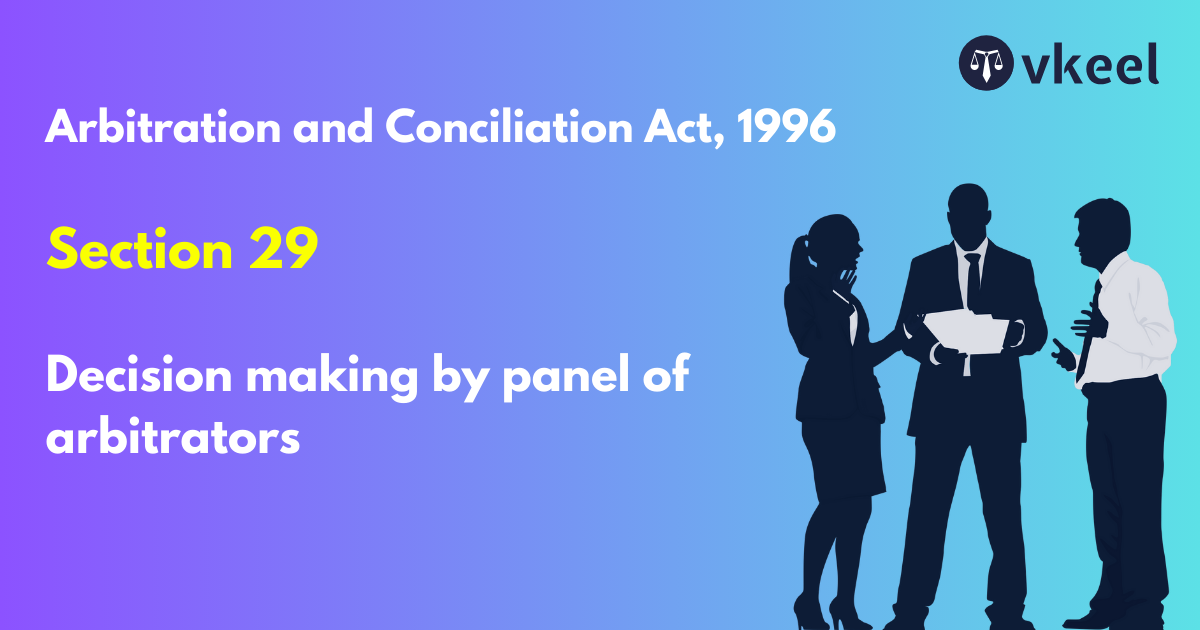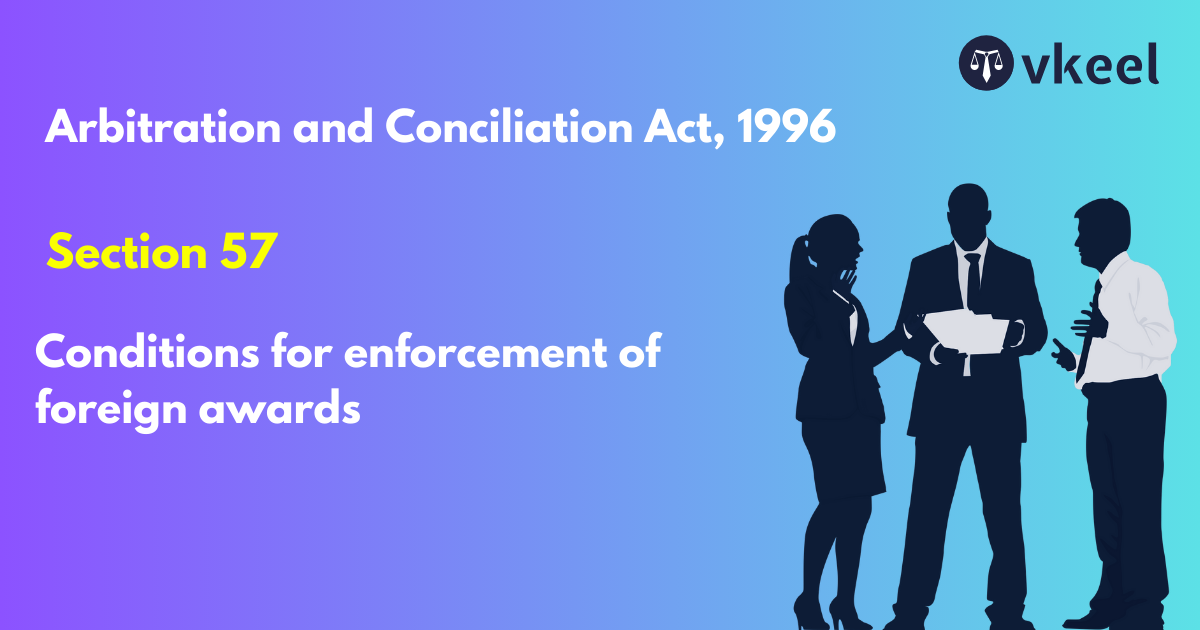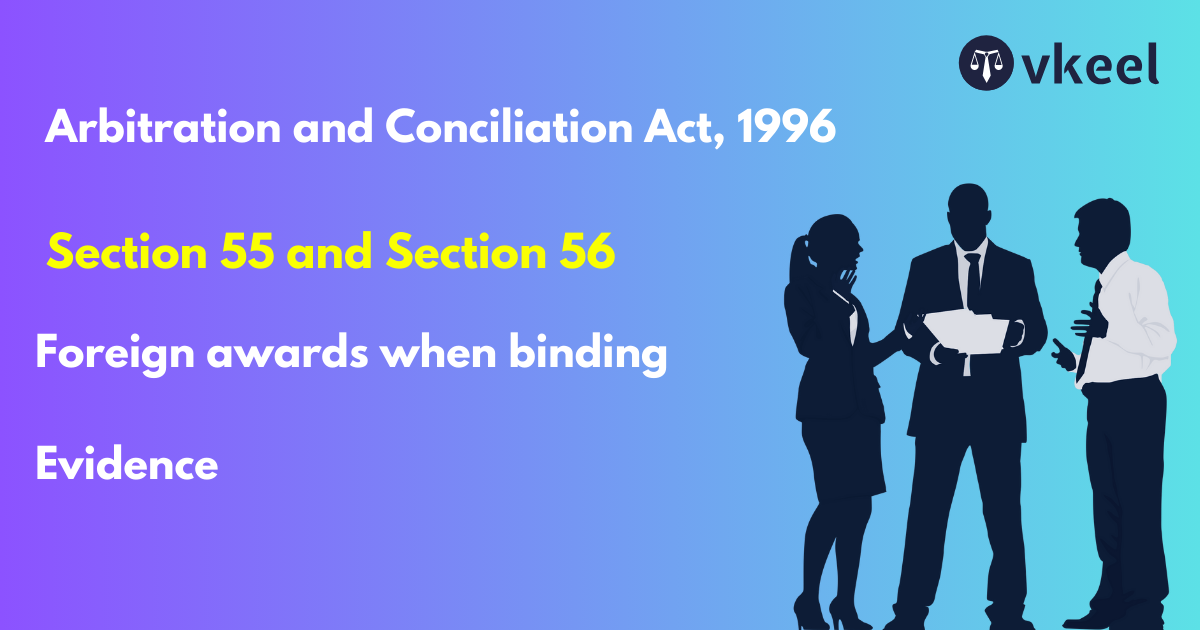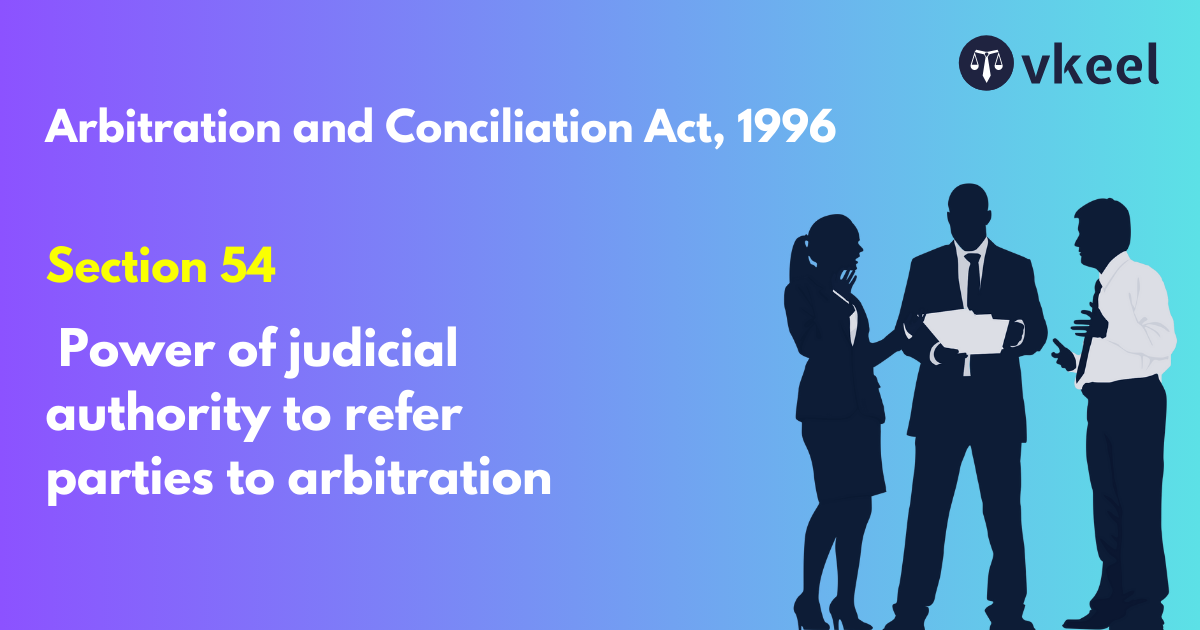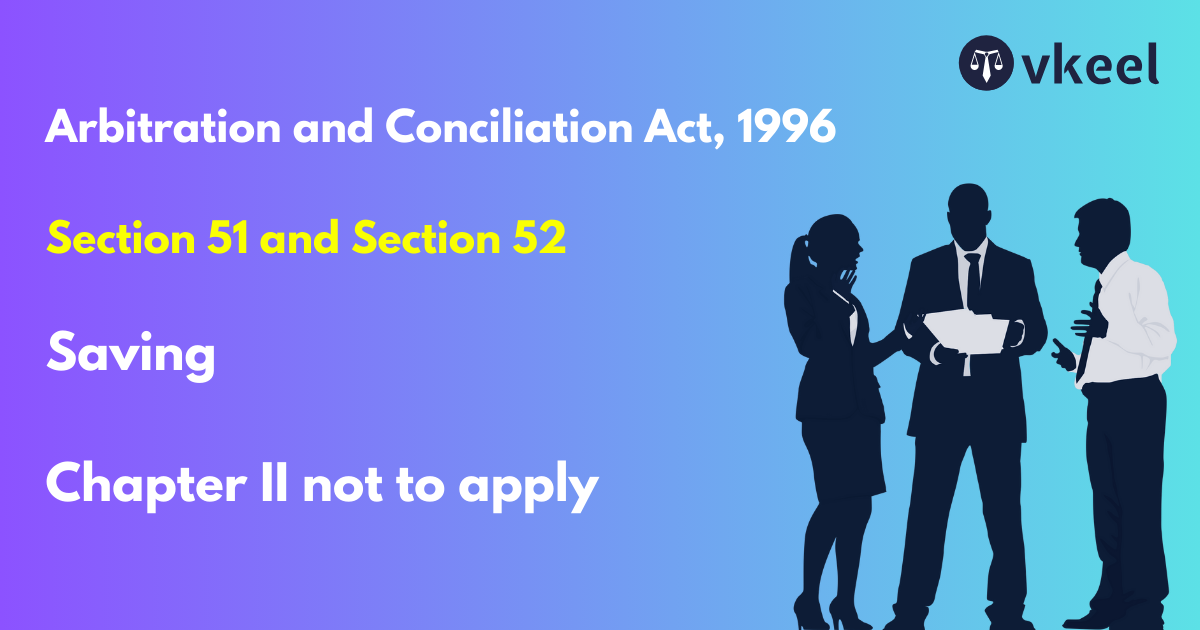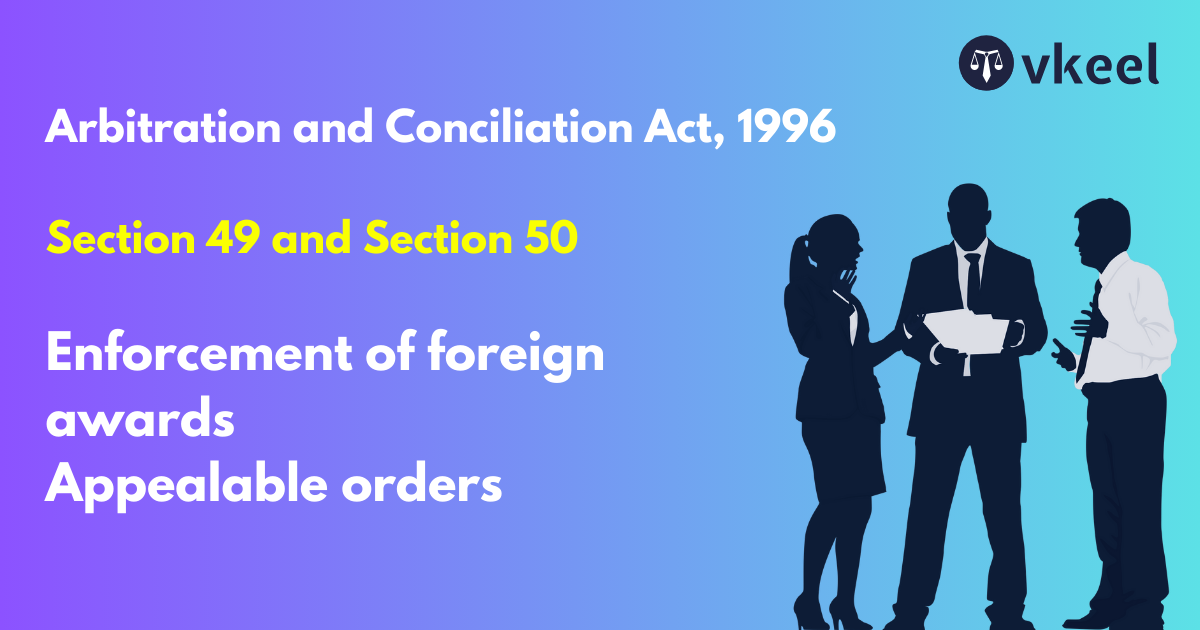Section 29: Arbitration and Conciliation Act, 1996
By Nivedita Dhiman
Table of Contents
Introduction of Section 29
Section 29 of the arbitration and conciliation act clearly provided that the decision by the majority of arbitrators would be the decision of the arbitral tribunal. This section focuses on the rules applicable to the substance of the dispute. It tells that an arbitral tribunal is required to decide the disputes in accordance with the agreed terms of the contract and the applicable law chosen by the parties. If no such agreement exists, the tribunal will apply the law it considers most appropriate.
Section 29 of arbitration and conciliation act
Decision making by panel of arbitrators
(1) Unless otherwise agreed by the parties, in arbitral proceedings with more than one arbitrator, any decision of the arbitral tribunal shall be made by a majority of all its members.
(2) Notwithstanding sub-section (1), if authorised by the parties or all the members of the arbitral tribunal, questions of procedure may be decided by the presiding arbitrator.
Landmark Judgements of section 29
A Cube Associates v UOI, 2019
The jurisdiction of the court under section 29-A(4) of the 1996 Act is limited only to examine the sufficiency of reasons for extension of time and not to examine the validity of the orders passed or examine as to whether the claim made by the applicant before the arbitrator was maintainable or not. The said issues would always remain open for the respondent to agitate at appropriate stage, in appropriate proceedings before the appropriate authority.
Chennai Container Terminal Put Ltd v Board of Trustees of Chennai Port Trust, 2018
If a majority award is liable to be set aside on grounds contained in section 34 and the court is of the view that the minority award correctly interpreted the law, the court might reject the majority view and place reliance on the minority view. It may be possible to look into the minority view only when it is found that the majority view is unsustainable in law.
However, if both the majority and minority views are plausible views, it is not open to the court to reject the majority view and uphold the minority view even though the minority view may also be a correct view.
Chandok Machineries v SN Sunderson ở Co, 2018
The legislature has, in section 29(1) of the 1996 Act clearly provided that the decision by the majority of arbitrators would be the decision of the arbitral tribunal. Therefore, the requirement of giving reasons for the omitted signature is only to assist the court in reaching a conclusion whether the arbitrator in minority was excluded from deliberations by the arbitral tribunal. An award cannot be set aside merely because it fails to give the reason for omission of signature of the minority arbitrator.
Bank Mellat v GAA Development and Const, Co, [1988]
The governing principle is that after the end of the hearing the parties are entitled to an impartial and fair consideration and resolution by the arbitrators, acting together, of all the issues. The sole purpose of a further meeting or consultation would have been to enable the dissenting arbitrator to discuss with the majority the redrafting of their majority award.
The dissenting arbitrator disagreed fundamentally and comprehensively with the majority award and its reasons and there was no reason why there should have been a further discussion with him.
Conclusion of section 29
The above-mentioned section states that the opinion of majority shall prevail. If there are three arbitrators , two will have the deciding voice because they constitute the majority. This section enjoins upon the arbitral tribunal to decide the disputes in accordance with the substantive law for the time being in force. All arbitrators constituting an arbitral tribunal must act jointly and must be present in all the meetings. The witnesses and the parties must be examined in the presence of all the arbitrators for the parties are entitled to have recourse to the arguments and judgment of each arbitrator at every stage of proceedings.
Disclaimer:
The information provided in the article is for general informational purposes only, and is not intended to constitute legal advice or to be relied upon as a substitute for legal advice. Furthermore, any information contained in the article is not guaranteed to be current, complete or accurate. If you require legal advice or representation, you should contact an attorney or law firm directly. We are not responsible for any damages resulting from any reliance on the content of this website.

